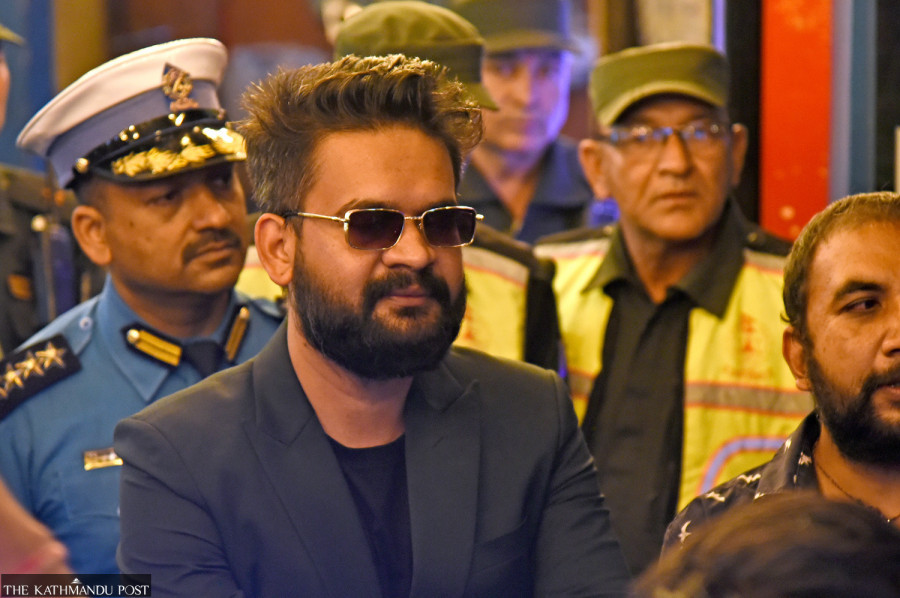Valley
Kathmandu mayor announces ban on Indian film screenings in the city
Mayor Shah says no Indian films will be screened in the city until the ‘objectionable’ line is removed from ‘Adipurush’.
Samuel Chhetri
On June 15, Kathmandu Metropolitan City Mayor Balendra Shah sent a tweet giving the producers of ‘Adipurush’—a recently-released Indian mythological action film based on the Hindu epic ‘Ramayan’—a three-day ultimatum to rectify a particular statement used in the film.
Shah objected to the film’s use of a line that claimed that ‘Janaki [Goddess Sita] is a daughter of India’. Shah’s tweet sent Nepali social media into a frenzy, with many users welcoming the mayor’s decision and others denouncing it.
As of Sunday evening, the tweet has been retweeted over 3,400 times and liked by over 13,800 users. It has received over 1,300 replies and is viewed 978,000 times.
When three days passed and the producers of the film didn’t heed the mayor’s call, Shah on Monday posted another update on his personal Twitter and Facebook accounts, stating that from Monday, all Indian movies would be barred from screening at cinemas within Kathmandu Metropolitan City.
Citing Articles 5 and 56 (6) of the Constitution of Nepal, Shah said that the federal, provincial and local governments have the responsibility to protect the national interest and that allowing the screening of the film without any changes could do irreparable damage to Nepal's nationality, cultural unity and national identity.
Article 5 of the constitution, which includes the elements of national interest of Nepal, states: “Safeguarding of the freedom, sovereignty, territorial integrity, nationality, independence and dignity of Nepal, the rights of the Nepali people, border security, economic wellbeing and prosperity shall be the basic elements of the national interest of Nepal.”
Article 56 (6) states that the federation, provinces and local level shall protect Nepal's freedom, sovereignty, territorial integrity, independence, national interest, and identity, among other things.
Shah in his post added that the metropolitan city’s attention was drawn towards the movie as it “culturally encroaches upon Nepal”.
The controversial film directed by Om Raut and produced by Bhushan Kumar is based on the Ramayan and stars Prabhas as Lord Ram, Kriti Sanon as Sita, Sunny Singh as Lakshman, and Saif Ali Khan as Raavan.
Amid the ongoing backlash, Manoj Muntasir Shukla, who wrote the dialogue for the film, made another claim in an interview with the Indian television channel Aaj Tak, adding fuel to the fire. He claimed that Nepal was a part of India until the early 1900s. However, no recorded history shows Nepal being ruled by a foreign power.
“I have not been able to understand the protest happening in Nepal. Nepal was a part of India when it was said that Sita is the daughter of India,” Shukla said. “It was in the year 1903 or 04 that Nepal became a separate nation from India. Nepal was in India and in this sense, Sita was the daughter of India. That's why I couldn’t understand Nepalis’ concern.”
Shukla’s comments have sparked another round of outrage on Nepali social media. “Disheartened with your lackadaisical approach towards Nepal’s cultural heritage,” wrote one user. “Let’s be mindful of overlapping culture and man made boundaries. Devi Sita hails from geographical territory, Janakpur which is situated in #Nepal, just as much as the birth of Siddhartha Gautam, Lord Buddha in Lumbini. [sic]”
Another user ridiculed Shukla’s comments as coming from the ‘WhatsApp University’, a terminology used to mock unsubstantiated remarks that various people make upon receiving forwarded messages in the messenger platform.
“When the source of all knowledge is WhatsApp University, then you will think this way. Nepal, which was never a part of the country, then how does the question of separation arise?” the user wrote. “Granted that Nepal is small, but look at the date and see if it has ever been a slave to someone? Shame on your ignorance.”
The movie is facing a backlash not just in Nepal but in India too. According to a report in The Hindu, a Hindu organisation filed a writ petition in Delhi High Court against the movie, demanding that the film not be certified for public screening.
As per the report, the national president of Hindu Sena, Vishnu Gupta, on Friday filed a Public Interest Litigation in Delhi High Court against the film alleging that it ‘hurts the sentiments of the Hindu community by depicting the religious leaders/characters/figures in an inaccurate and inappropriate manner.’




 13.12°C Kathmandu
13.12°C Kathmandu













